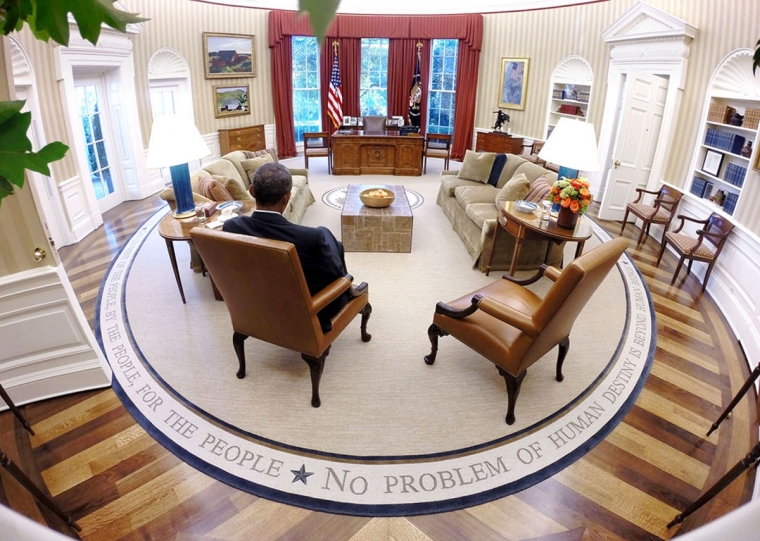U.S. int'l religious freedom interest downgraded to special 'advisor' from 'envoy'

WASHINGTON (Christian Examiner) - International religious freedom now has its own "special advisor" -- which reports to an ambassador, rather than a "special envoy" which reports to the Secretary of State, the White House has announced. And Senator James Lankford (R-Okla.) is challenging how that approach to key U.S. foreign policy objectives works -- especially since the "special envoy" position has been vacant for a while.
"The Administration has taken the position that 'promoting and protecting religious freedom is a key objective of U.S. foreign policy,'" the senator wrote in an open letter to Secretary of State John Kerry, "yet the Ambassador-at-Large for religious freedom is buried in layers of bureaucracy rather than reporting directly to you like the Ambassadors-at-Large for the Office of Global Women's Issues and the Office of Global AIDS Coordinator."
A special envoy reports directly to Secretary Kerry, while a special advisor may report to an envoy or ambassador.
Senator Lankford pointed out the State Department has special envoys for particularly important issues, including "climate change, the closure of the Guantanamo Bay detention facility, to promote the human rights of LGBT persons, and to promote Islamic cooperation"—but not for religious minorities in the Near East and South Central Asia.
Instead, after the Near East and South Central Asia Religious Freedom Act was passed in August 2014, providing for the President to appoint a special envoy holding the rank of ambassador, the position remained vacant for over a year.
Lankford wrote, "While I am pleased that someone will be dedicated to promoting and protecting the religious freedom of those in this region, I am very concerned about the length of time it took to fill the position and the ultimate status of the position."
SPECIAL ADVISOR, NOT SPECIAL ENVOY
In a press release on Sept. 23, 2015, the White House announced: "The Administration has appointed a Special Advisor for Religious Minorities in the Near East and South and Central Asia, who will help ensure that the urgent needs of these communities [Iraq and Syria] are taken into consideration in our military and humanitarian planning, and our multi-pronged efforts to assist in the return of these communities to their ancestral homes are implemented as expeditiously and efficiently as possible."
The White House did not announce the special advisor by name: Knox Thames, who has served as director of policy and research at the United States Commission on International Religious Freedom since February 2009.
After a long career in religious freedom issues and human rights issues, Thames is qualified "in experience, in sound judgment, and in his passion for the cause of religious freedom," according to former Ambassador-at-Large for International Religious Freedom John Hanford. Hanford told World News Service, "It's inexplicable why the position was downgraded" from special envoy, which Congress authorized, to special advisor.
"How does creating a lower level position reflect that promoting and protecting religious freedom is a key objective of U.S. foreign policy?" Lankford asked the Secretary of State.
The long vacancy of the position and now its lower hierarchical rank cause significant questions about the dedication and commitment of the State Department to the goals of the Near East and South Central Asia Religious Freedom Act and to those of the U.S. Commission on International Religious Freedom.
"If it is the goal of the United States to stand for the universal human right of all people to practice their faiths, then we must make that a priority not just internationally but here at home as well," Lankford wrote.
"It if is a priority, it must be treated as such in terms of the position within the State Department," he added.
Lankford respectfully requested a response from the State Department to his list of questions by Oct. 30.